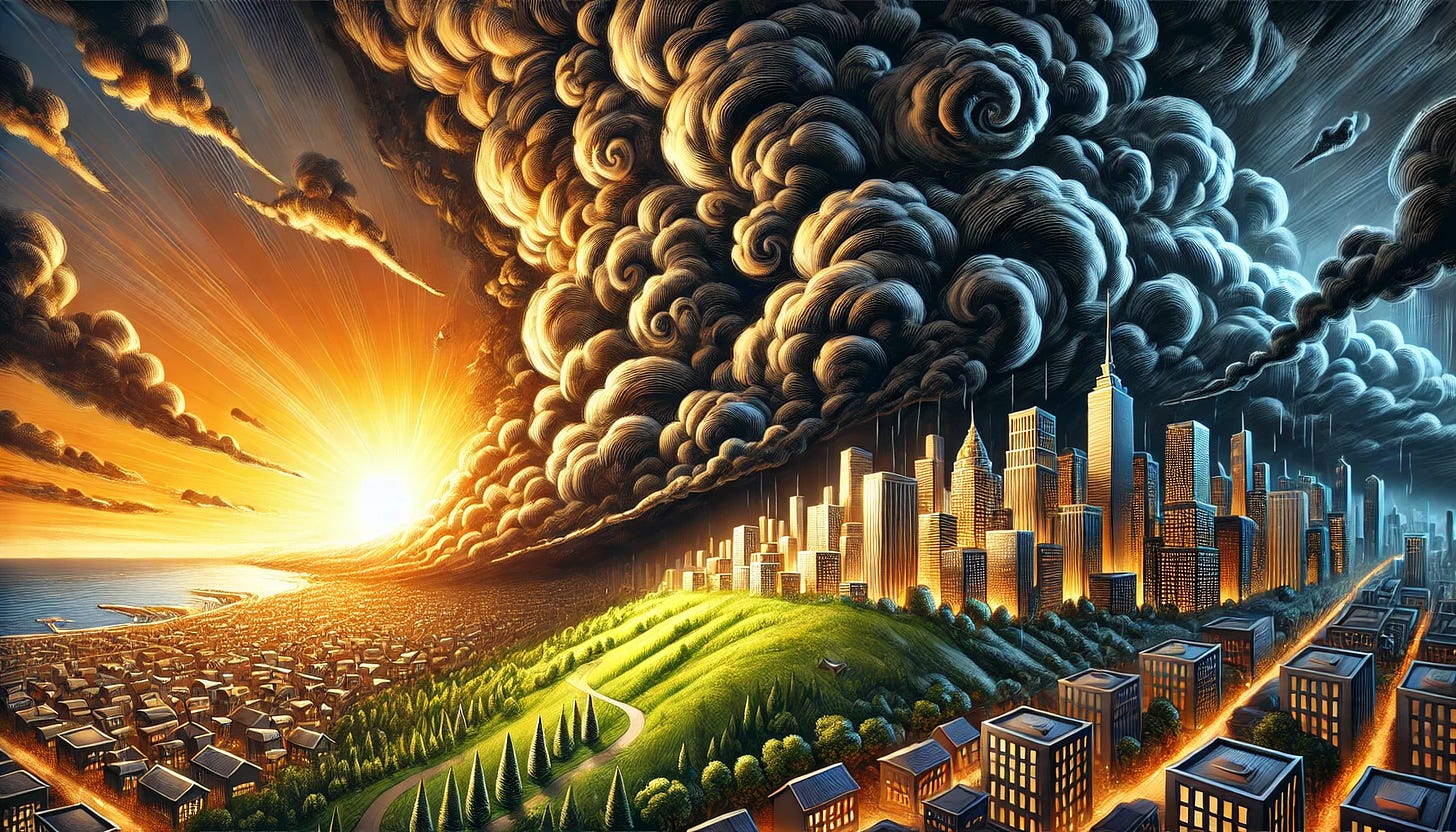The Americans seem unhappy
Dark clouds threaten the Shining City on a Hill. And the Democrats come to the party with poor politicians, complacency and a squabbling coalition.
The 2024 election will be scrutinized for years, but it is not too early to draw certain conclusions in the extraordinary reelection of a twice-impeached convicted felon whose campaign grotesquery including simulating a sexual act with a rally microphone days before the vote. It is a grim landscape for the Democrats, whose once-assumed “natural majority” appears to be falling apart, among other misfortunes.
A series of strong performances in the popular vote had brought many on the American center-left to the seductive belief that they would maintain the support of most voters, and that the main challenge was overcoming the unfairness of the Electoral College, which advantages the Republicans. The electoral system is certainly skewed, but it is becoming clear they have bigger problems still: their coalition is being torn apart at the seams by conflicting values among its constituent groups.
So exit polls show that Trump made gains in critical states among blacks, Latinos, Muslims and in some cases Jews. Strange bedfellows in Trumpland.
All these groups are part of the Democrat coalition, which ideologically is torn between progressives and liberals to boot. It is an understatement to say that these groups don’t always align. Pew finds strong levels of conservative instinct among blacks in particular. And critically, many minority voters are put off by progressive agendas around trans and LGBTQ+ rights. Simply put, each time a progressive figure seems to suggest that men can get pregnant, for example, Democratic support among these minorities takes another hit.
Moreover, the hyper-focus on group identities in general alienates traditional and moderate voters. And that includes people who call themselves “classical liberals” – a group with a deep traditional in European philosophical thinking and which does not align with the way the term has mutating in the US. Liberals prize individualism and freedom of thought – not limitless fidelity to and interest in unchosen hyphenated group affiliations. Moreover, liberals often view progressives as illiberal due to their strict ideological demands. D
Liberals and moderates also tend to accept that borders should be policed and defended – especially when waves of immigration may be based mostly on people who in fact do not share especially liberal values. They do not view defending one’s culture from waves of emigration as racism, or anything of the sort. But the far-left component of the Democratic coalition basically does. So the Dems’ perceived weakness on immigration was a massive Achilles Heel; it’s a lie that they want to fill the land with millions of future voters, but it’s not untrue that they tiptoe around the issue.
Dealing with the progressives – the rifts they cause in the party, and the flight to the right that they compel among minorities and moderates – is just one of the challenges facing the Democrats. The below survey finds many.
While the 2024 election was not an overwhelming endorsement by the American public, as some will claim, it does represent, as such events do, some critical shifts among significant sub-groups. Many will argue against “drawing conclusions from a sample of two” (as The Economist did) – but neither should we stick our heads in the sand. While no one factor can be proven to have been determinant, each contributed to a result that looks shocking. Here's a quick survey of the wreckage.
Immorality and indecency don’t matter much
The Trump brand is an unabashed carnival of outrageousness, from sex scandals to brazenly offensive rhetoric to utter stupidities that come out of his mouth with regularity.
Keep reading with a 7-day free trial
Subscribe to Ask Questions Later to keep reading this post and get 7 days of free access to the full post archives.




